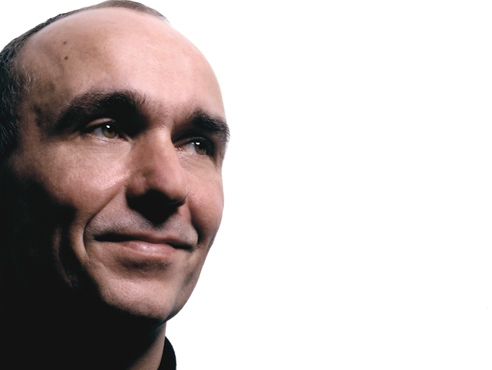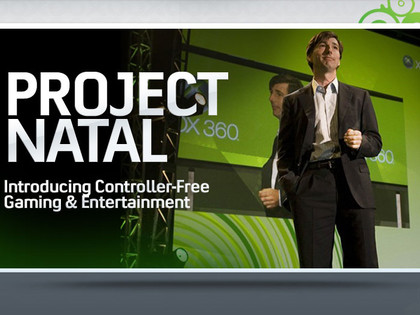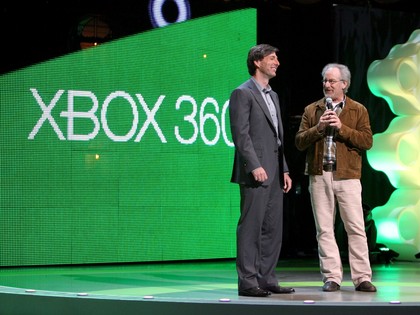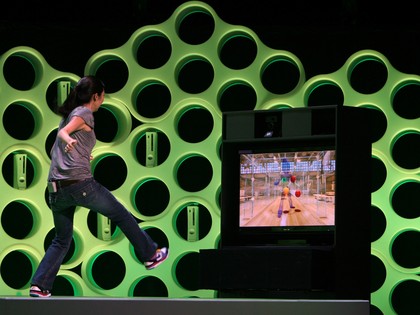Interview: Peter Molyneux on Natal
How Dickens' "Penny Dreadfuls" inspired Fable 3

TechRadar: You have been promoted to Creative Director of Microsoft Game Studios Europe this year. What does that involve? What extra responsibilities do you have in addition to your Lionhead duties?
Peter Molyneux: I'm still head of design at Lionhead and I'm still very much helping with Fable and Milo. In addition to that, Microsoft wanted me to act as a guide (more than a designer) for some of the other creative endeavours that are going on in Europe.
Which means that I get to go out and meet a lot more developers and superb designers that teach me how I still need to go back to school , very often! Basically, it is to make sure that everybody within Microsoft knows what is, creatively, going on in Europe, because it is so easy – because it is such a massive company - to focus on what is happening in Redmond.
And it is also to put a stake in the ground way, way out there and to say "come on, we can DO these creative things" and we cannot just sit on our hands and wait for other people to do them. Microsoft must be the innovational leaders. Innovation, surprising people and creating a sense of wonder is what consumers want.
TR: With Project Natal, it seems that Microsoft is making big moves into the casual market. Yet there is still this reticence on behalf of many hardcore gamers to embrace the move. Why?
PM: Well here's the thing. To start off with, its great to see this industry pushing itself into new areas. And forget that I'm employed by Microsoft for the minute, but for me it is not just about casual gaming, but it is about keeping on inventing and keeping things fresh.

Sure enough, we can go out there and carry on making consoles more and more powerful, giving them more and more memory and, you know, put more and more things into them. And that's somewhat exciting. But really the thing that excites us all the most is, to put it very bluntly, how we control the game.
Sign up for breaking news, reviews, opinion, top tech deals, and more.
I think Nintendo started that. It put the first foot forward. And it is great to see Microsoft now put another great big stride forward.
Now, in terms of what all of this means for hardcore gaming and console gaming and controller gaming – it doesn't replace it in any way. Especially for console games, with controllers designed to play a certain specific types of game.
And the controllers have been refined and re-refined, with buttons moved until we've reached the most ergonomic way to control the games we have on the 360 (and, indeed the PlayStation 3). Those games are not going to go anywhere. We are going to see more of them and they are going to be more exciting and more dramatic.
What Natal does for those games is just purely augment them and make them better, offering just another way of controlling them in addition to the controller. So that's one side of the argument.

The other side of the argument is what does it do to those people who don't like controllers and who feel threatened or intimidated or put off by them?
So if I say to someone – and this is the VAST majority of people – "do you like computer games?" Most people who don't play computer games will reply "I'm not good enough at them" or "they just make me feel stupid" or "I wasn't brought up with them"... or whatever their remark is.
And actually then saying to them that they don't actually have to hold anything in their hands and that they only have to use their body and their arms and their hands and their voice... suddenly one of those huge barriers that really has been in the way disappears.

I mean, going back to Sir Clive Sinclair, his dream was that computer gaming would be the most significant form of entertainment in the world. And that every home would have a console and would use it as regularly as they do the television. And we haven't quite succeeded in that. Yet. And in that sense I think Natal takes us a big step forward.
It is going to take a while to get our teeth into Natal-controlled games. But for me, as a designer, what I can do with Natal is just simply impossible with a controller.
TR: How long have you been working with it? And what was it like to demo it to people at E3 for the first time?
PM: We've been working with it since very late last year. About nine or ten months now. And as with any new piece of hardware there have been lots of iterations. Lots of changes along the way. As soon as you get it and as soon as you start using it and realise... well, I had to stop myself thinking as a designer "okay, how am I going to get the player to navigate, what is the equivalent of the thumb-stick? How am I going to get the player to put some things into the game, what is the equivalent of the button presses..."
And I had to stop myself thinking like that, because this is completely new and different. It is like when I went from mouse-based games to controller-based games. When I first did that I was always constantly thinking "god, how am I going to get the player to look round?"
And the same with Natal. But when I stopped thinking in the old-school way and started thinking "right, this is a completely new device that we are designing for," then life got an awful lot easier.
So we were lucky enough to show it off at E3. It was great to show it off on stage. But it was ten thousand times better to show it off behind closed doors. Just to say to people, when you are given a new controller like this, you can go out and create what you would immediately think of – all those obvious experiences, 'Body Tetris' and whatever else – but for me it was all about creating an experience that really engaged you far, far more.
And that's when we developed Project Milo. Which is based on this real feeling that people can walk up and meet a virtual character.
- 1
- 2
Current page: How Natal takes us closer to Sinclair's dream
Next Page A strange little virtual boy called Milo